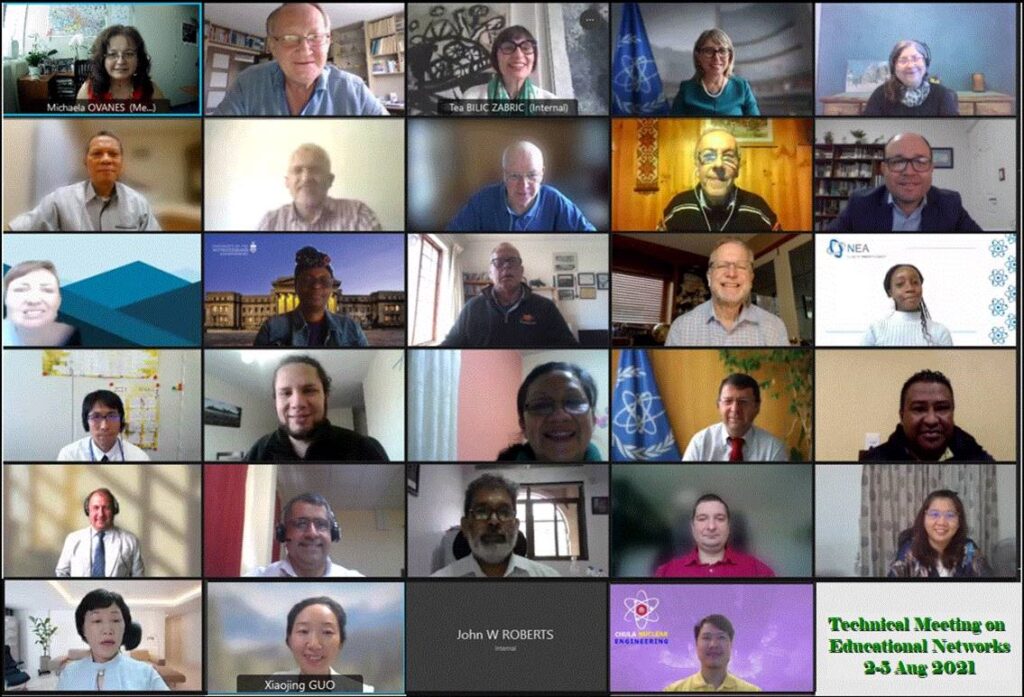
Networking education through regional and interregional cooperation enables a more effective use of educational resources – good practices, experiences and lessons learned can be shared through meaningful regional and interregional cooperation. Collaboration within and among educational networks contributes to the promotion, management, and preservation of nuclear knowledge, and helps to ensure that talented and qualified human resources are available for the safe and sustainable use of nuclear technology, experts agreed at a recent IAEA Technical Meeting on Educational Networks.
At the meeting, held from 2 to 6 August 2021 in Vienna, 64 participants from 31 countries and three international organizations, including representatives from existing nuclear education networks (AFRA NEST, ANENT, LANENT, STAR-NET, ENEN, NTEC, BNEN SCK-CEN, and UNENE) and educational institutions, reviewed the status of these networks and discussed areas for potential future collaboration, and considered how to further optimize communication.
Opening the meeting Helena Zhivitskaya, IAEA Scientific Secretary said that “the IAEA promotes partnerships among nuclear education and training institutions across the globe. It has directly fostered regional educational networks in Asia, Africa, Latin America and the Caribbean, and in Eastern Europe and Central Asia. The networks collaboration is the key factor in development of human recourses for nuclear sector and one the main element in the IAEA programme”.
The meeting programme included: update on the activities undertaken by the nuclear education networks, results achieved, and challenges faced and plans for the near future; discussions and feedback on the IAEA NKM digital hub and digital technology and platforms in support of networks; discussions on outreach material and strategies adopted by participating institutions and further development of STEM education; discussions and feedback on the new IAEA publication “Nuclear Educational Networks: Experience Gained and Lessons Learned”; and discussion on practical steps to strength networks cooperation.
The Regional Network for Education and Training in Nuclear Technology (STAR-NET) was presented by Aram Gevorgyan of National Polytechnic University of Armenia, Andrey Timoshchenko of Belarusian State University, and Andrei Kosilov of National Research Nuclear University MEPhI.
Representatives from each of the networks agreed to exchange information about events of common interest and to promote initiatives of other networks. A common workplan plan with guidelines on communication, collaboration in implementation of the IAEA programme on nuclear knowledge management including nuclear education, the use of digital tools and outreach activities, collaboration with youth and women organizations was updated and agreed upon during the meeting and will guide synergistic network activities in 2021-2022.